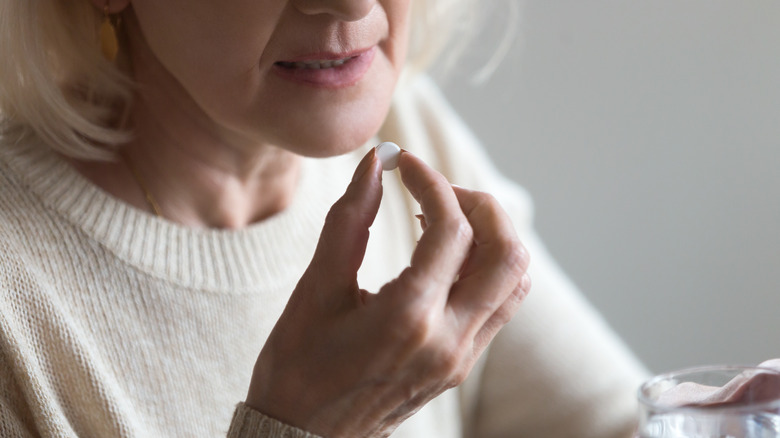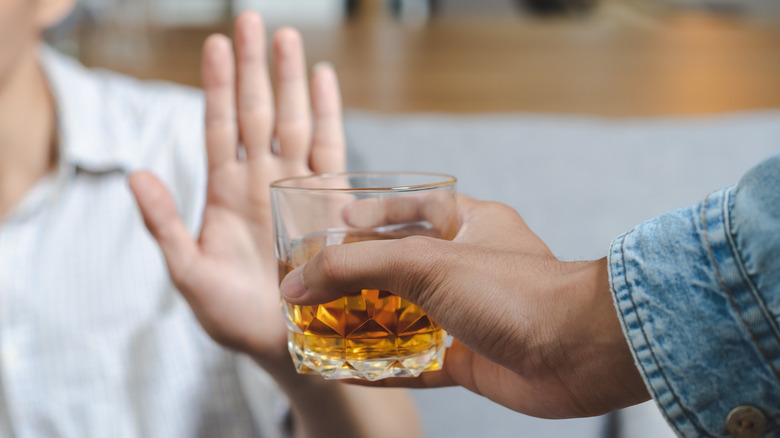Is It Safe To Drink Alcohol While Taking Blood Thinners?
Plenty of medications come with warnings about consuming alcohol while taking them, from antibiotics to antidepressants. But some may be riskier to imbibe on than others, including blood thinners.
Despite the name, blood thinners don't actually thin the blood, according to WebMD. Instead, they prevent new blood clots from forming in the blood by preventing platelets from clumping together and sticking to blood vessel walls. This helps the blood to flow more smoothly through the veins and arteries. If you've experienced a heart attack or stroke, your doctor may prescribe blood thinners to prevent a second one from occurring. It's also prescribed to those who have heart or blood vessel disease, irregular heart rhythm, lupus, or deep vein thrombosis. Those who are overweight, have had surgery recently, or have an artificial heart valve may be more susceptible to blood clots. Approximately 2 to 3 million people take blood thinners each year. While this is usually short-term, chronic health conditions can require long-term use as well.
The risks you should be aware of
While the benefits of these medications usually outweigh the risks, they can also be dangerous (via WebMD). Normally, the blood is actually supposed to clot, which is a mechanism for preventing too much bleeding when we cut ourselves or develop a bruise. If you're on blood thinners and are prone to injury, however, you should be extra careful.
Drinking alcohol can also be dangerous while on blood thinners, according to Healthline. While moderate drinking is generally okay for healthy people (defined as one drink per day for women and up to two for men), this should be determined by your doctor. If your liver or kidneys are impaired in any way, it will be more difficult for your body to filter out the medication, leading to excess thinning of the blood. You should contact your doctor if you notice more bruising than normal, notice blood in the urine, stool, or vomit, or if you suspect you may have internal bleeding. Symptoms of internal bleeding can include dizziness, weakness, fatigue, fainting, abdominal swelling, or very low blood pressure. Bottom line: Only consume alcohol moderately and carefully while on blood thinners, and be sure to consult your doctor first.


